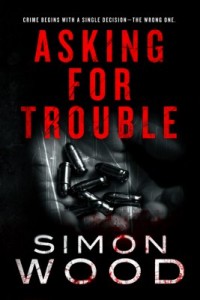A few years back, I was on a panel and an audience member asked what kind of writers we were. Struggling was the first thing that sprung to my mind, but that wasn’t the answer the questioner was looking for. I never felt that I had an agenda or a platform to perch my work upon. It was a really good question and it got me thinking.
I see themes in other writers’ work. I love Ruth Rendell when she writes under her Barbara Vane pseudonym. Guilt rears its ugly head in virtually all of her Vane novels. For those that have read her, just look at A Fatal Inversion, Gallowglass, The Chimney Sweeper’s Boy, No Night Is Too Long and The Brimstone Wedding to name a few. The characters have done something wholly terrible and they want it kept quiet, but no matter how depth the truth is buried, it finds a way of rising to the surface. At times, it’s hard to like these people but I can empathize with them. Luck sometimes keeps us from falling down a crevice of bad decision-making. I’ve noticed that Peter Straub often deals with a past injustice that only come to light generations later. When I notice a common thread, I wonder what the root cause is for the theme. What’s the source of the muse that created all these great books? What locked boxes do these authors have? Maybe none. Maybe I’m transferring too much of myself into the situation and reading things that aren’t there. But I hope not. 🙂
But what about me. What can o’ worms get opened up every time I write a tale. When I examine my stories, I do see a common theme running through them all. Predicaments seem to play a central role in my stories. Usually an unsuspecting person, an average Joe by every definition, is put on the spot. A situation arises that my protagonist can’t walk away. The reason they are there is usually their own fault. Sometimes it falls into the no good deed variety, but usually, the story’s hero has done something to get them ensnared. A tryst. An indiscretion. A little white with a black edge. A past mistake. These factors are subject to Newtonian psychics. For every action, there’s an equal and opposition reaction. It doesn’t matter how minor the mistake my characters have committed, there’s a price to be paid. Things come back to trip my protagonists up. This means my heroes are starting off on the back foot. They are struggling with desperate times where failure means the destruction of their comfortable way of life. So my stories are told from a nightmarish stance. My protagonists are desperate when the reader meets them.
Where do these characters come from? Why have I chosen storylines like this? I think it’s because I can identify with these people. I live a pretty ordinary life, but I can see how fine a line I walk. One bad decision and my life could change forever. There have been several instances in my life where something I’ve done has come back to bite me (and I may share one or two of these over the month). Some very innocuous actions have caused some of these instances. I also grew up with a number of people who bit off more than they could chew and it really cost them. So when my what-if synapses kick in, it usually centers on a minor action that will snowball into something large. The stories in Asking For Trouble touch this subject again and again from different angles. Matt joins the Taskmasters to turn his life around and ends up on the wrong side of the law. In Making End Meet, Richard’s in-laws are draining his financials until he finds a way of dealing with them, but his attempts backfire. Leah is trying to defend her home, but there’s a bigger price to be paid when she brings A Gun In The House. These characters will either succumb to these situations or fight to drag themselves clear of danger.
So I have a method to my madness and I like it, because life has a funny way of turning mean when you cross a line. Just ask Anthony Wiener.
Yours trying to be good,
Simon


